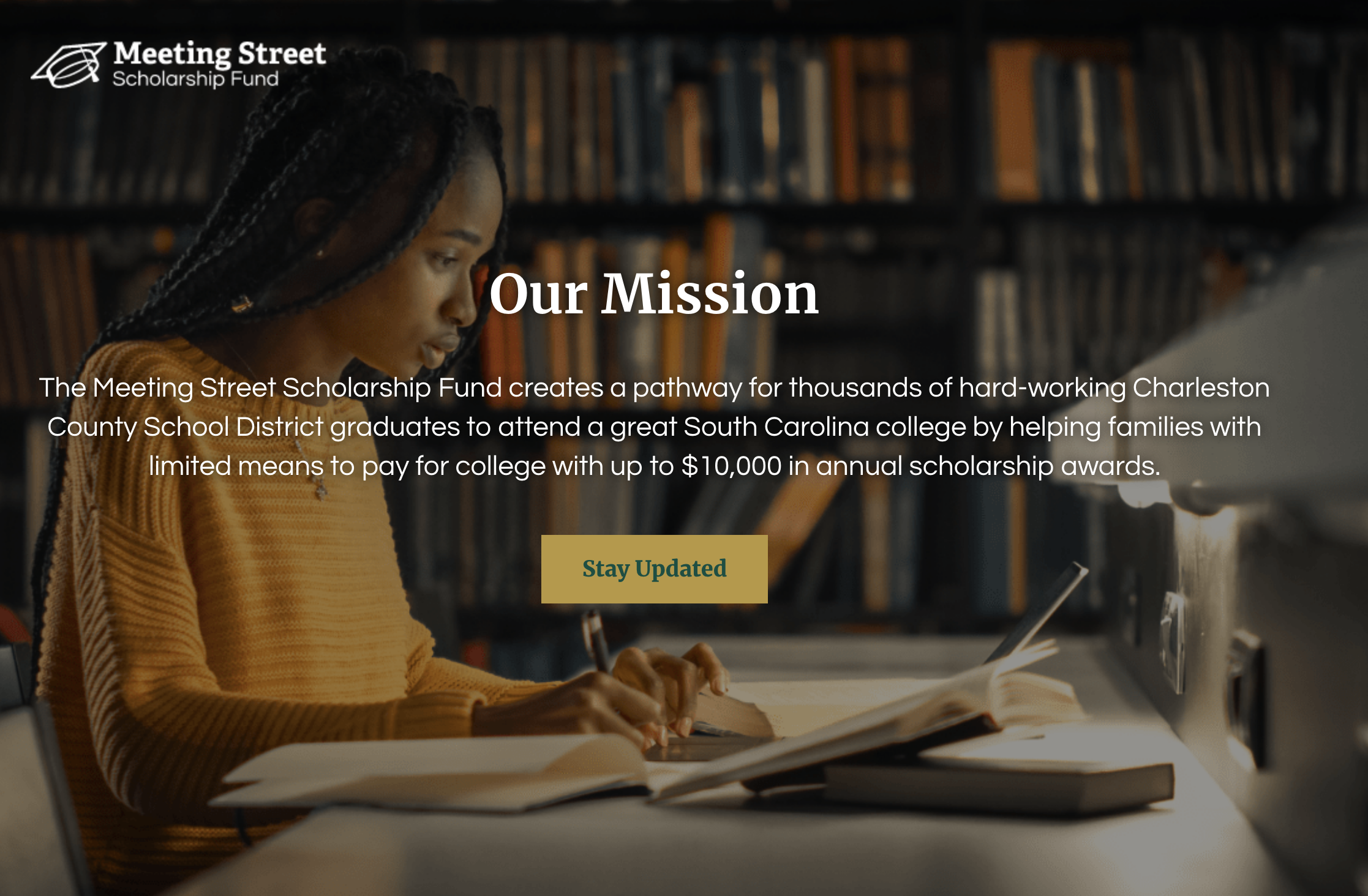Course Catalog
Course Catalog
Applying for Scholarships
Applying for Scholarships is a self-guided class containing:
- Links to scholarship websites
- Scholarship research chapters from "Show Me the Money: Scholarships, Financial Aid, and Making the Right College Choice"
 Since institutional scholarships provide the largest amount of funding for college, far out weighing funding from the state and federal government (i.e., Pell Grant, state scholarships); or from private scholarships (e.g., Gates Scholarship, Ron Brown Scholars, Jack Kent Cooke Scholars, Burger King Scholars, Coca Cola Scholars, etc.), there is a module devoted to institutional scholarships.
While large private scholarship programs are covered, students are guided in researching local scholarships and identifying scholarships to which their background and body of work are strong matches.
Forms and tables are provided to assist students in being well organized and an overview of scholarship essays is provided to ensure that students seek the best support for reviewing and proofreading scholarship essays and applications.
Students may email questions or request a one-on-one session to further discussion their college and scholarship application strategies.
Since institutional scholarships provide the largest amount of funding for college, far out weighing funding from the state and federal government (i.e., Pell Grant, state scholarships); or from private scholarships (e.g., Gates Scholarship, Ron Brown Scholars, Jack Kent Cooke Scholars, Burger King Scholars, Coca Cola Scholars, etc.), there is a module devoted to institutional scholarships.
While large private scholarship programs are covered, students are guided in researching local scholarships and identifying scholarships to which their background and body of work are strong matches.
Forms and tables are provided to assist students in being well organized and an overview of scholarship essays is provided to ensure that students seek the best support for reviewing and proofreading scholarship essays and applications.
Students may email questions or request a one-on-one session to further discussion their college and scholarship application strategies. What to Do After Applying to College
There are many important steps to be taken after applying to college—while your application being processed or after being offered admission. This class provides step-by-step guidance.
The Meeting Street Scholarship
- Reside in Florence County
- Graduate from a Florence School District 3 public high school
- Qualify for the South Carolina LIFE or Palmetto Fellows Scholarship
- Two of the following three requirements must be met:
- Earn at least a 3.0 GPA in high school
- Score at least 1100 on SAT or 24 on ACT
- Rank in the top 30% of your graduating class
- Two of the following three requirements must be met:
- Attend one of the eligible SC colleges and universities
- Qualify for the federal Pell Grant after completing the FAFSA
- Anderson University
- Bob Jones University
- Claflin University
- Clemson University
- College of Charleston
- Columbia College
- Columbia International University
- Converse University
- Erskine College
- Furman University
- Newberry College
- North Greenville University
- Presbyterian College
- Southern Wesleyan University
- The Citadel
- University of South Carolina – Columbia
- Wofford College
- Winthrop University
2023-24 10th Grade Cohort
 Setting goals within a college context reflects the concept of, "Backwards Mapping," or beginning with the end in mind. For one student, the end may be getting into their top choice college. For another student, the end may be earning a full scholarship. For Jayla, who joined our Florence School District 3 Cohort as a rising 10th grader, her first year in our program was life changing. Ranked at the top of her class, Jayla, who will be the first in her family to attend college, was an extraordinary academic student who believed that strong academics were all that was needed for being offered admission to top colleges.
Approaching our curriculum with the intellectual curiosity that made her a top academic student, she quickly realized that she must be intentional in her actions to become more than an accomplished academic student. Her embrace of our curriculum during the 10th and 11th grades resulted in her becoming an exceptional college applicant as she enters her senior year of high school. Her impressive list of accomplishments during her sophomore and junior years of high school, landed her an invitation to the Yale Young Global Scholars Program; being selected as a QuestBridge College Prep Scholar; and a coveted fly-in invitation to Carleton College.
Jayla is an example of "It does not matter where you start, but how you finish."
Setting goals within a college context reflects the concept of, "Backwards Mapping," or beginning with the end in mind. For one student, the end may be getting into their top choice college. For another student, the end may be earning a full scholarship. For Jayla, who joined our Florence School District 3 Cohort as a rising 10th grader, her first year in our program was life changing. Ranked at the top of her class, Jayla, who will be the first in her family to attend college, was an extraordinary academic student who believed that strong academics were all that was needed for being offered admission to top colleges.
Approaching our curriculum with the intellectual curiosity that made her a top academic student, she quickly realized that she must be intentional in her actions to become more than an accomplished academic student. Her embrace of our curriculum during the 10th and 11th grades resulted in her becoming an exceptional college applicant as she enters her senior year of high school. Her impressive list of accomplishments during her sophomore and junior years of high school, landed her an invitation to the Yale Young Global Scholars Program; being selected as a QuestBridge College Prep Scholar; and a coveted fly-in invitation to Carleton College.
Jayla is an example of "It does not matter where you start, but how you finish."
Our Curriculum
Since we do not want our program to present students with another area of stress on an already overloaded schedule, our curriculum is developed around 4 distinctive areas of focus for each year of high school: 9th Grade: The focus is on who you are and how you can make a smooth transition into high school. 10th Grade: The primary focus is on building on the successes of 9th grade or overcoming any challenges that may have resulted in failure to achieve all of your goals. The secondary focus is strengthening each of the 3 pillars of our program: Scholarship, Leadership, and Service. 11th Grade: The primary focus is maximizing this critically important year of high school in building a strong brand and making yourself the most competitive college and scholarship applicant possible by the end of your junior year. As in 10th grade, the secondary focus is strengthening each of the 3 pillars of our program: Scholarship, Leadership, and Service—areas that will be critically evaluated when you apply to colleges and for scholarships as a high school senior. 12th Grade: Our Senior Cohort begins in June, prior to beginning your senior year of high school, so that your college application and scholarship plan is developed and essays are written prior to the opening of school so that you are well ahead of classmates and in a better position to reduce your stress and enjoy your senior year of high school. In our 10th grade curriculum, students will:- Reflect on the successes and challenges of 9th grade as they set, revise, or continue pursuing goals across each of our 3 pillars of Scholarship, Leadership, and Service.
- Revisit their gifts, talents, personality, learning style, and temperament within the context of moving in an intentional way to develop their brand.
- Reflect on how their mindset and grit are reflected in their coursework, extracurricular activity involvement, and community service.
- Reflect on how their goals are aligned with their educational/career aspirations.
- Explore the type of colleges and programs aligned with their body of work and family's financial need.
2023-24 Emerging Leaders Cohort
 While we have had many exceptional students participate in our college planning cohort program, we have only had one student who has participated in our program since the 3rd grade. Pictured here is Kimberly, who, as a sixth grader, received her first Dr. Cassandra Young Marcus Award for Academic Excellence and Leadership awarded by our church, Turner Chapel AME in Marietta, Georgia. As a 3rd grader, Kimberly, set her sights on qualifying for the Marcus Award, presented to the top male and female student in our church in grades 6 - 12. She also set her sights on earning a full college scholarship and learned, through our program, that the most direct pathway to a full college scholarship was academic excellence. However, such a pathway could be further expanded with leadership and service.
As a result of these early conversations to provide guidance, and her own grit and determination, Kimberly became the first 7-year recipient of the Marcus Award at our church and was offered 6 full college scholarships (Amherst College, Duke University, Princeton University, Vanderbilt University, Washington and Lee University, and Williams College). Kimberly has graduated from Williams College with a Bachelor of Arts Degree in Math and Chemistry and is now pursuing a PhD in Math as a graduate student at Iowa State University.
We believe that Kimberly's achievements are possible any middle school student who commits to developing their gifts and talents; pursues leadership within the context of their gifts, talents, personality, temperament, and interests; and commits to engaging in meaningful community that results in an indelible impact on their school and community.
While we have had many exceptional students participate in our college planning cohort program, we have only had one student who has participated in our program since the 3rd grade. Pictured here is Kimberly, who, as a sixth grader, received her first Dr. Cassandra Young Marcus Award for Academic Excellence and Leadership awarded by our church, Turner Chapel AME in Marietta, Georgia. As a 3rd grader, Kimberly, set her sights on qualifying for the Marcus Award, presented to the top male and female student in our church in grades 6 - 12. She also set her sights on earning a full college scholarship and learned, through our program, that the most direct pathway to a full college scholarship was academic excellence. However, such a pathway could be further expanded with leadership and service.
As a result of these early conversations to provide guidance, and her own grit and determination, Kimberly became the first 7-year recipient of the Marcus Award at our church and was offered 6 full college scholarships (Amherst College, Duke University, Princeton University, Vanderbilt University, Washington and Lee University, and Williams College). Kimberly has graduated from Williams College with a Bachelor of Arts Degree in Math and Chemistry and is now pursuing a PhD in Math as a graduate student at Iowa State University.
We believe that Kimberly's achievements are possible any middle school student who commits to developing their gifts and talents; pursues leadership within the context of their gifts, talents, personality, temperament, and interests; and commits to engaging in meaningful community that results in an indelible impact on their school and community.
Our Focus
The focus of our Emerging Leaders curriculum is to provide a context for the monthly conversations between middle school students, currently attending school in Georgia and Florida. However, our program is open to any middle school who is committed to completing the work needed to prepare for the monthly discussions and participating in each of the 9 monthly discussions from September through May. Our Emerging Leaders curriculum is supported by a college adviser, high school intern, and guest speakers. Each component of our program is designed to provide support and encouragement as students build their capacities through their emergence as a youth leader. Students are assigned to discussion groups of 6 - 8 students, guided by a college intern, in a supportive and encouraging environment where they become part of a "Conversational Community" of students from throughout the country with similar hopes and dreams for the future.2023-24 Learning Styles and Study Skills
 Through this yearlong learning styles and study skills curriculum, you will learn how you learn, how to study, how to manage your time, who you are, and how to use your gifts and talents for success in school today and putting yourself onto your desired post-secondary pathway toward, college, scholarships, or a career.
Through this yearlong learning styles and study skills curriculum, you will learn how you learn, how to study, how to manage your time, who you are, and how to use your gifts and talents for success in school today and putting yourself onto your desired post-secondary pathway toward, college, scholarships, or a career.
Encouraging students to advocate for themselves is an important focus in our national college planning program. While not all students envision college as part of their post-high school journey, we developed a program to provide guidance and coaching support for students who have college-bound aspirations. We also believe in the approach to learning advocated by the authors of “Make it Stick: The Science of Successful Learning:”
The popular notion that you learn better when you receive instruction in a form consistent with your preferred ‘learning style,’ for example as an auditory or visual learner, is not supported by the empirical research. People do have multiple forms of intelligence to bring to bear on learning, and you learn better when you ‘go wide,’ drawing on all of your aptitudes and resourcefulness, than when you limit instruction or experience to the style you find most amenable. [p. 4]
We believe that helping students to understand their personality, temperament, intelligences, mindset, and grit is the beginning of understanding who they are. Their goals and aspirations for the future provide insight into the type of person they want to be, things that they want to accomplish, and impact that they want to have in their family, community, or in the world. Developing strategies to better learn, avoid or resolve conflicts, and create spaces that are mentally and emotionally healthy, is “going wide.”
 Each module opens with Guiding Questions reflecting two high value learning strategies, referred to as Assessing Prior Knowledge and Pre-thinking. Student responses to the questions will reflect prior knowledge of the topics being presented and stimulate thinking as to what students think they will learn. Each day wraps with with student responses to the affirmative statement, “What has become clearer to me.” While Summarization is typically considered to be a low value learning strategy, we have evidence that when students “go wide” by using their multiple intelligences to engage in thoughtful self-reflective narrative writing, summarization can be a high value learning strategy.
Each module opens with Guiding Questions reflecting two high value learning strategies, referred to as Assessing Prior Knowledge and Pre-thinking. Student responses to the questions will reflect prior knowledge of the topics being presented and stimulate thinking as to what students think they will learn. Each day wraps with with student responses to the affirmative statement, “What has become clearer to me.” While Summarization is typically considered to be a low value learning strategy, we have evidence that when students “go wide” by using their multiple intelligences to engage in thoughtful self-reflective narrative writing, summarization can be a high value learning strategy.
Students are engaged in the metacognitive process, supported by high value learning strategies, which can be further supported by the Socratic method (see following page), as used in our small group discussions.
Metacognition is, put simply, thinking about one’s thinking. More precisely, it refers to the processes used to plan, monitor, and assess one’s understanding and performance. Metacognition includes a critical awareness of a) one’s thinking and learning and b) oneself as a thinker and learner (Click 2023).
These evidence-based approaches are essential to guiding discussions; deepening learning; and developing critical thinking skills. They have proven effective for students participating in our college planning program as evidenced by their pensive, thoughtful, and self-reflective writing shared across this series of books. We are confident that collectively, students will benefit from the 4-day experience by positively influencing their K — 12 success and expand their opportunities after high school.
2023-24 High School Junior Cohort
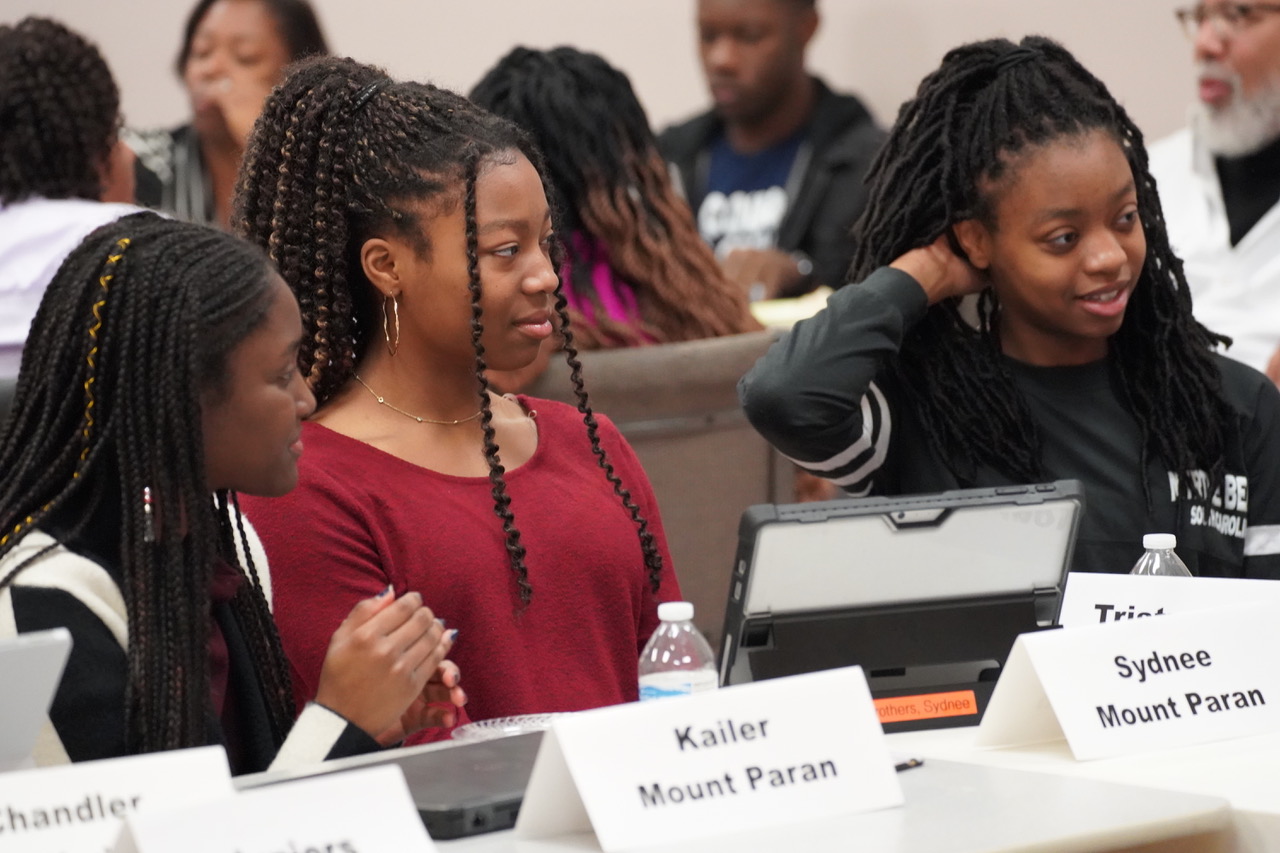 While college planning should begin long prior to entering high school, high school juniors literally have one year to get it right. The Brothers triplets joined our program as high school sophomores with a family aspiration of minimizing college costs and avoiding student loan debt for their parents who would be sending 3 children to college at the same time.
High school juniors in our program begin the school year with a set of goals aligned with their college and career aspirations. Throughout their junior year of high school they fine tune and perfect their plan across the areas of academics, leadership, service, and their intangibles (i.e., gifts and talents, interests, sociocultural background).
Mid-year is an important touch point where we meet with students and families to discuss their goals, monitor their progress, reassess their college list, and reassert student's second semester goals.
In May, we engage in a year-end assessment, finalize their college and scholarship lists and enter the phase during the summer months of finalizing their college application and scholarship strategy; brainstorming essay topics; writing essays; identifying application deadlines and admissions cycles within a strategic context.
The triplets followed this plan to perfection. Kailer was offered admission to Wesleyan University with a scholarship funding over 95 percent of the cost of attendance. Sydnee was selected as a North Carolina A&T Dowdy in the A&T Honors College and awarded a full scholarship. Tristyn was offered a near full scholarship to Carleton College, but wanted to be closer to home. After making calls to our college partners at Claflin University in Orangeburg, South Carolina, Tristyn and her family toured the campus, met the president of the college, and was offered admission, together with a full scholarship to the Claflin University Alice Carson Tisdale Honors College. The triplets are the best examples of our program providing the guidance and support, and students committing to developing the body of work to make themselves competitive candidates for the many opportunities that our program is designed to expose them to. And their parents, are the best examples of parents who support the process and who embrace the idea that avoiding student loan debt should be a family priority.
While college planning should begin long prior to entering high school, high school juniors literally have one year to get it right. The Brothers triplets joined our program as high school sophomores with a family aspiration of minimizing college costs and avoiding student loan debt for their parents who would be sending 3 children to college at the same time.
High school juniors in our program begin the school year with a set of goals aligned with their college and career aspirations. Throughout their junior year of high school they fine tune and perfect their plan across the areas of academics, leadership, service, and their intangibles (i.e., gifts and talents, interests, sociocultural background).
Mid-year is an important touch point where we meet with students and families to discuss their goals, monitor their progress, reassess their college list, and reassert student's second semester goals.
In May, we engage in a year-end assessment, finalize their college and scholarship lists and enter the phase during the summer months of finalizing their college application and scholarship strategy; brainstorming essay topics; writing essays; identifying application deadlines and admissions cycles within a strategic context.
The triplets followed this plan to perfection. Kailer was offered admission to Wesleyan University with a scholarship funding over 95 percent of the cost of attendance. Sydnee was selected as a North Carolina A&T Dowdy in the A&T Honors College and awarded a full scholarship. Tristyn was offered a near full scholarship to Carleton College, but wanted to be closer to home. After making calls to our college partners at Claflin University in Orangeburg, South Carolina, Tristyn and her family toured the campus, met the president of the college, and was offered admission, together with a full scholarship to the Claflin University Alice Carson Tisdale Honors College. The triplets are the best examples of our program providing the guidance and support, and students committing to developing the body of work to make themselves competitive candidates for the many opportunities that our program is designed to expose them to. And their parents, are the best examples of parents who support the process and who embrace the idea that avoiding student loan debt should be a family priority.
2024 4-day College Planning Boot Camp
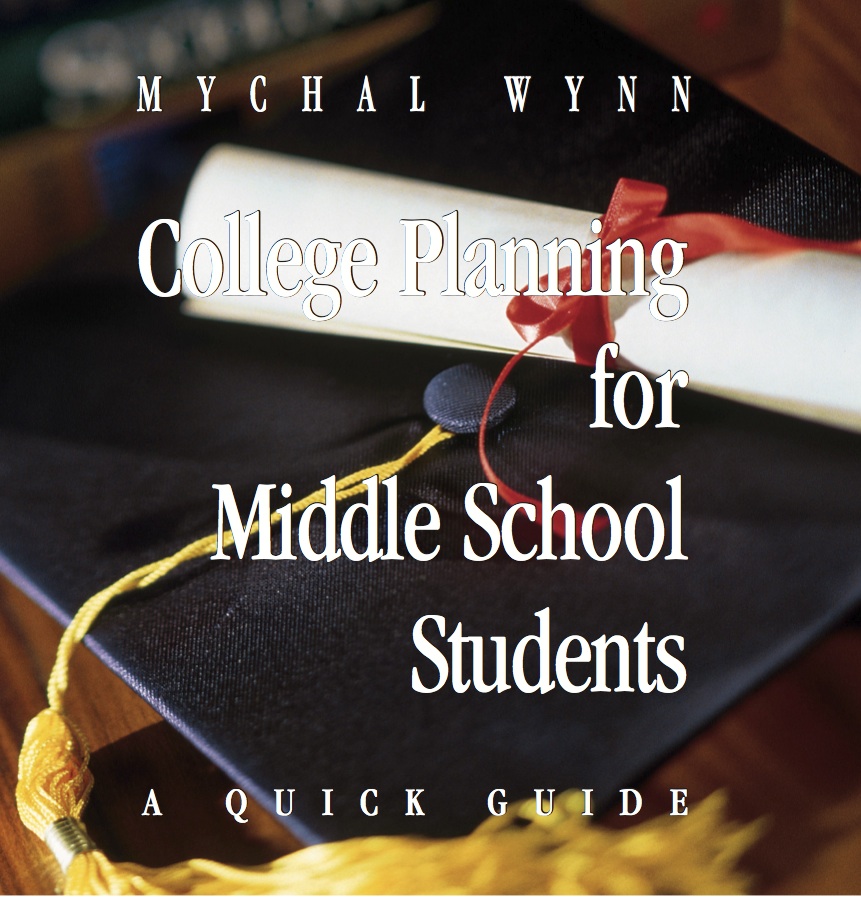 Our summer college planning boot camps introduce students to our college planning process which has allowed students participating in our College Planning Cohort Program to be awarded full college scholarships at over 25 times the national average. Through a culturally relevant interdisciplinary curriculum, boot camp students are not only introduced to the 3 pillars of scholarship, leadership, and service within a college and career context, but are introduced to the stories of students offered admission to selective colleges and awarded highly competitive scholarships as a result of their intentional college planning efforts.
Through our expansive curriculum, students are introduced to such topics as personality type; temperament; mindset; grit; and multiple intelligences as the foundation for examining their interests and engaging in career exploration. Students are guided through researching colleges and scholarships consistent with their college/career aspirations and financial need.
Our summer college planning boot camps introduce students to our college planning process which has allowed students participating in our College Planning Cohort Program to be awarded full college scholarships at over 25 times the national average. Through a culturally relevant interdisciplinary curriculum, boot camp students are not only introduced to the 3 pillars of scholarship, leadership, and service within a college and career context, but are introduced to the stories of students offered admission to selective colleges and awarded highly competitive scholarships as a result of their intentional college planning efforts.
Through our expansive curriculum, students are introduced to such topics as personality type; temperament; mindset; grit; and multiple intelligences as the foundation for examining their interests and engaging in career exploration. Students are guided through researching colleges and scholarships consistent with their college/career aspirations and financial need.
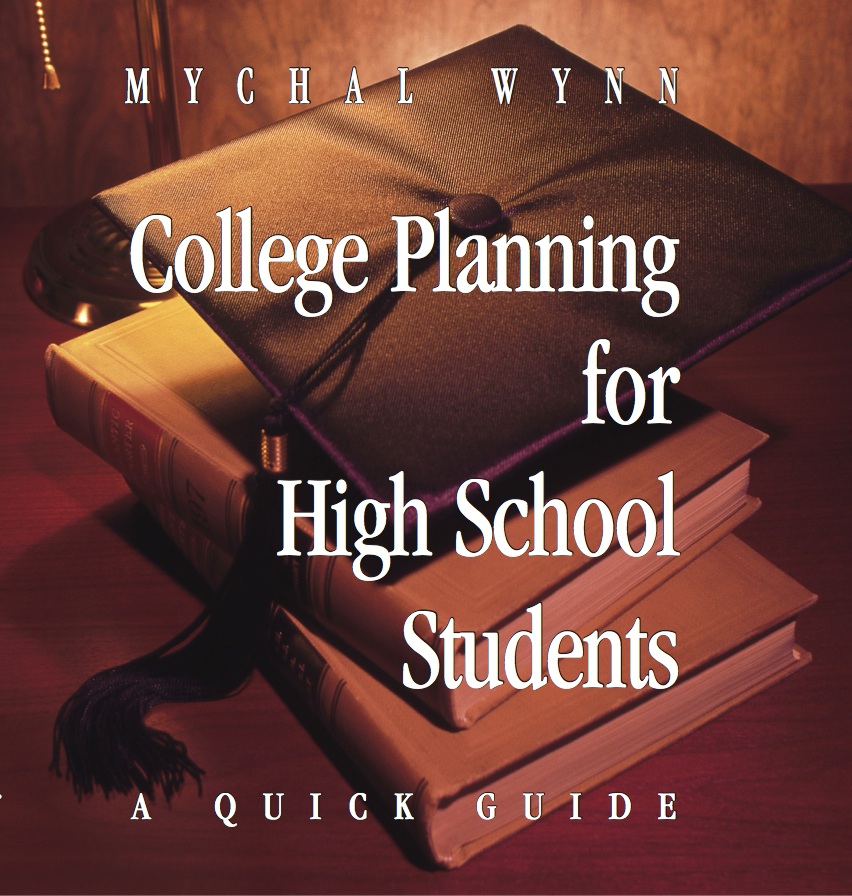 Students engage in large group presentations, small group discussions, and self-guided study as they create the framework of near-term and long-term strategies from their current grade through the end of their junior year of high school in preparation for submitting college and scholarship applications.
In addition to receiving access to our online curriculum, students receive grade-level appropriate resources.
Students who attend our summer boot camp and who choose to return for our full-year program will be in an accelerated discussion group.
Students participating in our college planning cohort program have been offered admission to the country's most selective colleges, including Harvard, Yale, Princeton, and The University of Chicago; the country's most selective liberal arts colleges, including Amherst, Williams, Swarthmore, and Vassar; and the country's most selective HBCUs, including Spelman, Morehouse, Howard, and North Carolina A&T State University.
Students have been awarded the country's most prestigious scholarships, including the Gates Scholarship, Ron Brown Scholarship, Jack Kent Cooke Scholarship, Rhodes Scholarship, and National Science Foundation Fellowship.
Students engage in large group presentations, small group discussions, and self-guided study as they create the framework of near-term and long-term strategies from their current grade through the end of their junior year of high school in preparation for submitting college and scholarship applications.
In addition to receiving access to our online curriculum, students receive grade-level appropriate resources.
Students who attend our summer boot camp and who choose to return for our full-year program will be in an accelerated discussion group.
Students participating in our college planning cohort program have been offered admission to the country's most selective colleges, including Harvard, Yale, Princeton, and The University of Chicago; the country's most selective liberal arts colleges, including Amherst, Williams, Swarthmore, and Vassar; and the country's most selective HBCUs, including Spelman, Morehouse, Howard, and North Carolina A&T State University.
Students have been awarded the country's most prestigious scholarships, including the Gates Scholarship, Ron Brown Scholarship, Jack Kent Cooke Scholarship, Rhodes Scholarship, and National Science Foundation Fellowship.
HBCU Academy
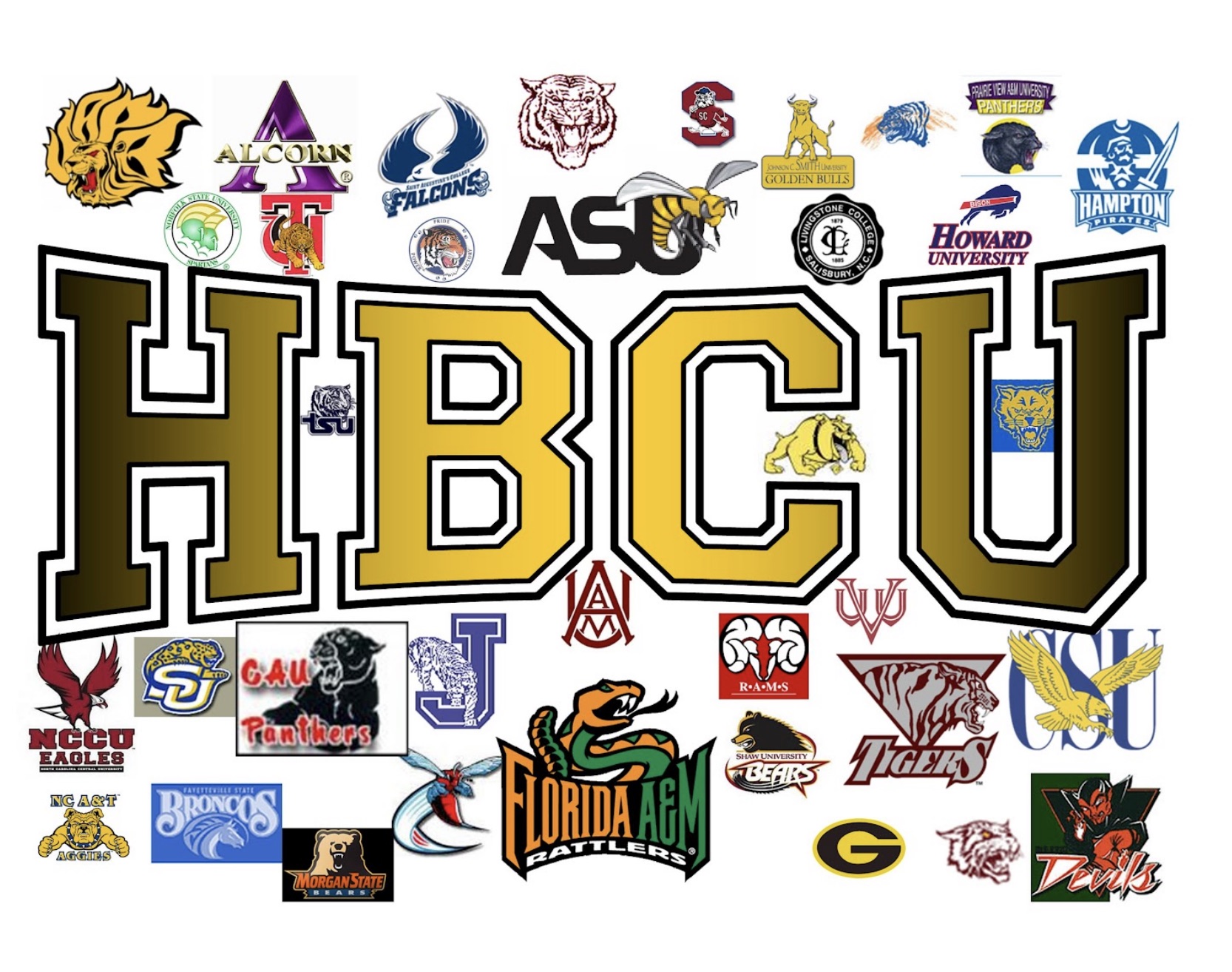 This class has been developed to support the California Community Colleges Transfer Guarantee Pathway to Historically Black Colleges & Universities by providing step-by-step guidance in researching the participating schools, identifying scholarships, and preparing high quality college and scholarship applications, with an overarching goal of avoiding student loan debt. The objective of the California Community Colleges Transfer Guarantee to Historically Black Colleges and Universities (HBCUs) program is the development of transfer pathways that will facilitate a smooth transition for students from any California Community College to a partner HBCU. These pathways will simplify the transfer process and reduce students’ need to take unnecessary courses, thereby shortening the time to degree completion and saving student costs. The agreement provides the following benefits:
This class has been developed to support the California Community Colleges Transfer Guarantee Pathway to Historically Black Colleges & Universities by providing step-by-step guidance in researching the participating schools, identifying scholarships, and preparing high quality college and scholarship applications, with an overarching goal of avoiding student loan debt. The objective of the California Community Colleges Transfer Guarantee to Historically Black Colleges and Universities (HBCUs) program is the development of transfer pathways that will facilitate a smooth transition for students from any California Community College to a partner HBCU. These pathways will simplify the transfer process and reduce students’ need to take unnecessary courses, thereby shortening the time to degree completion and saving student costs. The agreement provides the following benefits:
- Any California community college student with a GPA of 2.0 or higher (NOTE:certain partner HBCUs will require a higher GPA) is guaranteed admission to all partner HBCU institutions using either of the following options while at the California Community College, the student must:
- Complete an Associate Degree for Transfer (ADT) using the Intersegmental General Education Transfer Curriculum (IGETC) or
- Complete the California State University General Education Breadth pattern or
- Complete a minimum of 30 UC or CSU units.
- Application fee waiver code available for applying to four participating partner schools through the Common Black College Application.
- Pre-admission advisement.
- Priority consideration for campus housing (when deadlines are met).
- Priority consideration for scholarships for students with a 3.2 GPA or higher based on the institution’s available funding.
- A one-time $5,000 stipend (per Assembly Bill No. 1400) provided to qualified students who transfer from a California Community College to one of the partner schools. The one-time award would be valid for only one academic year.
